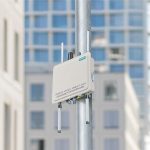Modern businesses rely on IT infrastructure to function without interruption. Servers, network devices, and data storage systems form the backbone of digital operations, and they are highly sensitive to temperature fluctuations.
When heat builds up in these environments, equipment performance can drop dramatically, and the risk of hardware failure increases.
Keeping everything running smoothly requires more than just buying the right technology; it also demands an environment built to support it.
Among the most critical aspects of this support system is a well-maintained cooling solution.
Professional air conditioning services play a central role in creating and maintaining optimal conditions for IT equipment to function reliably.
Preventing Overheating in Server Rooms
IT equipment produces substantial heat during operation. Without proper cooling, temperatures can escalate quickly, leading to slower processing, shutdowns, or permanent damage. Data centers and server rooms are designed with high-performance computing in mind, but even the best hardware setups are only as reliable as the systems that cool them. This is where commercial air conditioning services become essential. Positioned within the broader context of a facility’s climate control strategy, these services offer precision cooling systems capable of managing heat loads effectively. The primary goal is to maintain stable temperatures throughout the space, preventing hotspots from forming around racks and critical hardware. This proactive approach avoids the common pitfalls of overheating, such as data corruption, increased downtime, and shortened hardware lifespan.
Maintaining Optimal Humidity Levels
Temperature regulation is only part of the equation when it comes to safeguarding IT environments. Humidity plays an equally critical role and can quietly undermine system stability if left unchecked. High humidity levels introduce excess moisture into the air, creating the risk of condensation forming on delicate electronic components. This moisture can corrode internal circuits, damage connectors, and eventually lead to short circuits or complete equipment failure. On the other hand, when the air becomes too dry, static electricity can build up within the room. A single electrostatic discharge might not be noticeable, but it can destroy microprocessors or memory chips in an instant.
Professional air conditioning systems designed for IT environments come equipped with humidity control features that prevent these extremes. Rather than focusing solely on temperature, these systems actively monitor and regulate the air’s moisture content, maintaining it within the narrow and safe range recommended for server rooms—typically between 40% and 60% relative humidity. Technicians trained in environmental control understand how minor fluctuations can have major consequences, and they calibrate systems accordingly.
Energy-Efficient Cooling for Reduced Operational Costs
Server rooms often run 24/7, consuming large amounts of power not only through computing but also through cooling. Standard cooling solutions may keep the room cool, but at a high cost in electricity. Over time, this leads to significant overhead, especially for businesses that rely heavily on data processing. Professional air conditioning providers specialize in energy-efficient system design, offering tailored solutions that minimize power consumption without sacrificing performance. Advanced features such as variable speed compressors, thermal zoning, and smart monitoring systems allow the equipment to cool only when and where needed. This targeted cooling approach limits waste and keeps energy bills under control. Regular maintenance, another key service, also contributes by keeping units in peak working condition, ensuring they operate with maximum efficiency over time.
Supporting Uptime and Business Continuity
Downtime in IT environments can be disruptive and expensive. For some industries, a brief outage translates to lost revenue, regulatory penalties, or reputational damage. Cooling failure is one of the leading preventable causes of unexpected IT system downtime. This makes reliable air conditioning more than just a comfort feature; it becomes a business necessity. Professional services provide redundancy planning, load balancing, and emergency backup options to keep systems stable during unexpected spikes in heat or power interruptions. By identifying vulnerabilities before they become problems, expert technicians help businesses build resilience into their infrastructure. Routine system audits and performance testing are part of the package, helping to guarantee consistent uptime and reduce the chances of thermal shutdowns.
Adapting to Scalable IT Growth
IT systems rarely remain static. As businesses grow, their computing needs expand, and with that comes the need for additional cooling capacity. A professional approach to air conditioning doesn’t just meet today’s needs but plans for tomorrow’s. Flexible system designs allow for easy upgrades and expansion. Modular cooling units, ductless systems, and scalable chillers can be integrated without requiring a complete overhaul of existing infrastructure. This kind of foresight is crucial for organizations anticipating growth. Professional technicians assess current heat loads, forecast future requirements, and install systems with room to grow. This not only extends the life of the initial investment but also supports smoother transitions as IT systems evolve.
Compliance with Industry Standards and Safety Regulations
IT environments are often subject to strict operational and environmental standards, particularly in sectors where data integrity and uptime are critical. Industries such as healthcare, finance, legal services, and government often operate under regulatory frameworks that mandate specific temperature ranges, humidity controls, and continuous system uptime. Failure to meet these requirements can lead to fines, reputational damage, or the revocation of licenses and certifications. Professional air conditioning services are structured to align with these expectations. Technicians are trained to design, install, and maintain systems that meet both international standards and local codes. These may include fire suppression integration, advanced filtration for air quality, redundant systems for backup cooling, and precise environmental monitoring with logging capabilities that are often required during audits. Service documentation, temperature tracking reports, and maintenance logs are provided regularly, allowing businesses to demonstrate compliance without delay. When regulatory inspections occur, having a professionally managed cooling system simplifies the process and reduces the risk of non-compliance findings. Beyond external mandates, this level of control helps companies maintain internal performance benchmarks and service-level agreements.
Protecting IT equipment from heat and environmental damage requires more than a standard AC unit. It demands expertise, planning, and reliable execution. From preventing overheating to controlling humidity, reducing costs, and supporting scalability, professional air conditioning services offer comprehensive protection for technology that businesses depend on daily. As systems become more complex and computing loads grow, maintaining a stable environment will only become more critical. Investing in expert cooling solutions is not just about comfort – it’s about preserving the systems that power everything from data storage to real-time communication. With the right support, businesses can focus on performance without worrying about the silent threat of heat creeping into their operations.








